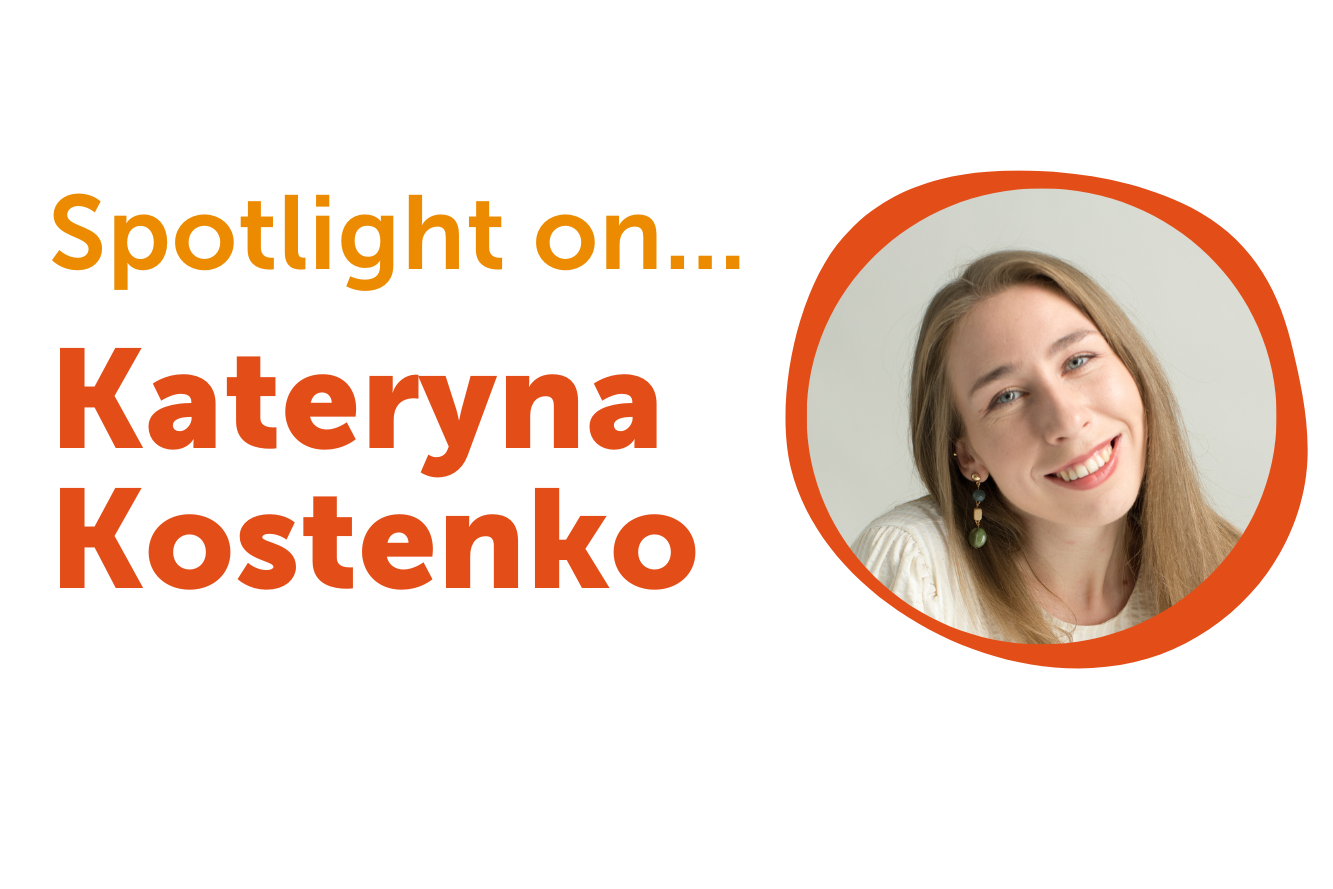“Displaced Ukrainian children must not lose touch with their culture and their home”

The war in Ukraine has severely disrupted education, with thousands of schools damaged and millions forced to flee the country.
The NGO Smart Osvita devised the Stay With Ukraine project, which is supported by Theirworld and the Global Business Coalition for Education. It helps displaced children attending schools abroad to also continue their Ukrainian education.
Groups of students attend online afterschool classes taught by teachers still in Ukraine.
In the latest of out Spotlight On… series, we talk to Kateryna Kostenko, a Smart Osvita project manager who oversees the Stay With Ukraine programme. Kateryna also organises professional training for teachers.
Tell us more about the Stay with Ukraine project.
The idea arose as a reaction to Russia’s military invasion of Ukraine and the departure of a large number of children of various ages. We understood that children who move abroad will study and live in a different context, that of another country. Children also experience stress due to moving and losing their usual life in Ukraine.
We had to support the students, to let them understand that Ukraine has not forgotten about them and that we are all looking forward to their return home.
We adapted the learning programmes and focused on three subjects – Ukrainian language, literature and history.
Within the Stay With Ukraine project, students can study for one hour in the afternoon (for example, on Monday, Wednesday and Friday) or on Saturday for three hours to learn the most important things that their peers in Ukraine are learning.
The learning process takes place in small groups. Children get to know each other and, with the help of teachers, form a community, strengthening the feeling of belonging to the country.
Why is it important for students outside of Ukraine to continue studying Ukrainian literature, language and culture?
In schools abroad they have the opportunity to study such subjects as mathematics, chemistry or physics – but they do not study Ukrainian literature, the Ukrainian language and the history of Ukraine.
Accordingly, they can forget – and to forget means to lose contact. Our goal is to ensure that children do not lose touch with their culture and their home.
When the students return home, it will be easier for them to study according to the Ukrainian curriculum. Thanks to our project, they will not have lost basic knowledge of these subjects.
How have children and families responded to the programme?
We can definitely say that it is extremely positive. We have received a huge amount of great feedback from both parents and students. We also received positive feedback from the teachers.
For some teachers, it was a completely new experience and they were amazed at how proactive our students were and how eager they were to learn. Pupils passed tests in their Ukrainian schools and their results are very high.
This project is not only about education. It is also about support and that we are always waiting for our students to return home.
Tell us about the "hugs” game to support children working through trauma.
The therapeutic “hugs” game is specially designed to support parents and children who are stressed and anxious. There are cards with illustrations and different types of hugs that vary in intensity and even distance.
For example, the “bird hugs” card indicates that you need to hug the child, as if taking him under your wing, and “kitten hugs” involves gentle touches with cheeks and noses.
It is close, reliable family relationships that help start the recovery process. When we experience long-term stress, we lose touch with our physicality, which is extremely important. But adults and children, with all their need for closeness, can find it difficult to withstand physical contact during times of stress.
What are your hopes for the future of Smart Osvita?
We hope to support even more students and teachers, and for our projects to reach even more educators.
We help students overcome educational losses and want to be able to help even more of them. We also help teachers cope with the heavy workload associated with war and stress. We are developing lessons and want to prepare them even more.
We also hope that, thanks to our projects, we will be able to influence educational trends and processes in Ukraine.
What keeps you motivated when challenges seem too large to overcome?
I am very motivated by the results of the work we do. Positive feedback is also incredibly motivating. The thought that we help students keep in touch with Ukrainian education and their native home gives strength to our work – and this gives strength to our students.
What is the greatest lesson you have learned outside the classroom?
The importance of studying the basic rules of self-regulation, identifying people in stress and trauma and reacting to it. Such things as psychological stability and a sense of security are important for children to be able to learn well. Our organisation often talked about this within the framework of the reform of the New Ukrainian School [an education ministry initiative].
But this year we understood very clearly how stress and anxiety affect the learning process. We saw traumatised children, stressed children, exhausted children.
We ourselves can barely help ourselves, although we are sure that we are very strong and resilient. Therefore, learning to cope with stress, helping yourself and others is probably the most important lesson.